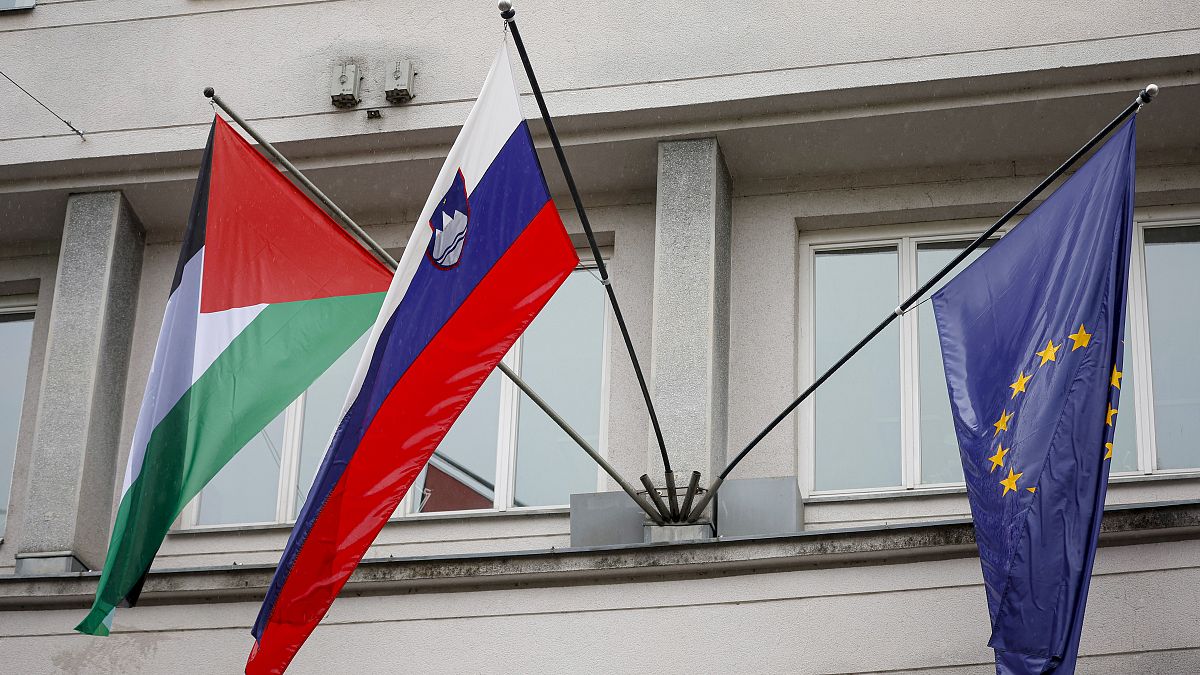Slovenia joined a growing number of European countries in recognizing a Palestinian state after its parliament voted in favor of the move. The decision was endorsed by the government and needed final approval from parliament to take effect. The vote ended with 52 in favor of recognition and no opposing votes, with the remaining lawmakers abstaining. This decision came shortly after Spain, Norway, and Ireland also recognized a state of Palestine, a move that was condemned by Israel. Previously, only seven members of the EU officially recognized a Palestinian state, with Sweden being the most recent in 2014.
The recognition of a Palestinian state by Slovenia is just one of the recent instances of European countries taking steps towards recognizing Palestine’s statehood. This move is significant as it increases the number of countries supporting Palestinian statehood, which now includes over 140 countries globally. The recognition of a Palestinian state by more countries can potentially lead to increased pressure on Israel to work towards a peaceful resolution to the ongoing Israeli-Palestinian conflict. This can also have implications for future peace negotiations and diplomatic relations in the region.
Slovenia’s decision to recognize a Palestinian state comes amid growing international support for Palestine and criticism of Israel’s policies towards the Palestinian people. The recognition of a Palestinian state by Slovenia signals a shift in European attitudes towards the Israeli-Palestinian conflict and a willingness to engage more actively in resolving the long-standing issue. This move also reflects Slovenia’s commitment to supporting the rights and aspirations of the Palestinian people, as well as promoting peace and stability in the region.
The decision by Slovenia to recognize a Palestinian state has geopolitical implications for the region and beyond. The move could potentially lead to other European countries following suit and recognizing Palestine, further isolating Israel diplomatically. This could also impact the dynamics of the Israeli-Palestinian conflict and future peace negotiations. The recognition of a Palestinian state by Slovenia highlights the increasing international pressure on Israel to engage in meaningful dialogue and work towards a just and lasting solution to the conflict.
The recognition of a Palestinian state by Slovenia is likely to have economic and trade implications for both Slovenia and Palestine. Establishing diplomatic ties and recognizing a Palestinian state can open up new opportunities for economic cooperation, investment, and trade between the two countries. This move can also enhance Slovenia’s reputation as a country that supports international law, human rights, and the rights of the Palestinian people. It can also strengthen Slovenia’s position in international forums and organizations that deal with the Israeli-Palestinian conflict.
In conclusion, Slovenia’s decision to recognize a Palestinian state reflects a growing global trend towards supporting Palestine’s statehood and rights. The move is significant in the context of the Israeli-Palestinian conflict and could potentially have positive implications for peace negotiations and diplomatic relations in the region. The recognition of a Palestinian state by Slovenia also highlights the country’s commitment to promoting peace, stability, and justice in the Middle East. This decision sends a strong message to the international community about the importance of supporting the rights and aspirations of the Palestinian people and working towards a just and lasting solution to the conflict.










